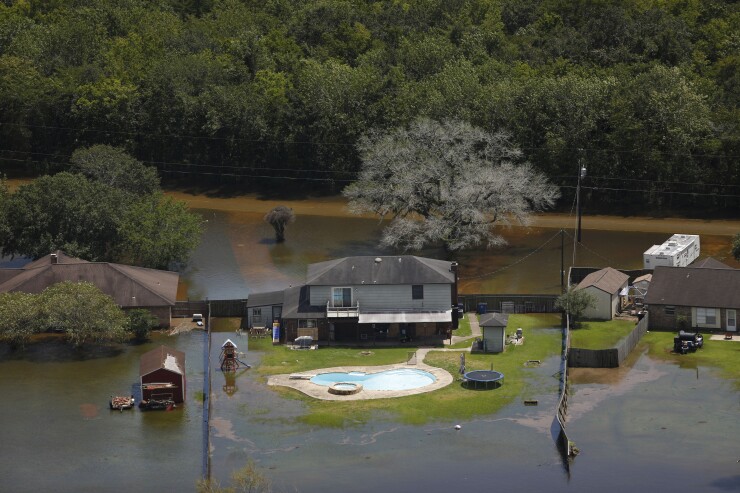Lenders in Houston and other flood-ravaged parts of Texas are bracing for a wave of missed payments — particularly on auto loans and residential mortgages — as distressed borrowers use any available cash to get back on their feet.
It is too soon to say how big the storm-related losses will be for banks and credit unions. But damage estimates released in the aftermath of Hurricane Harvey suggest that the impact will be substantial.
More than 185,000 homes were

As a result, many affected homeowners will end up owing more money on their mortgages than their homes are worth. It is a predicament that may discourage borrowers from making their monthly payments, particularly when they have a slew of new expenses as a result of flood-related property damage.
When asked where the storm will leave its biggest impact, Patrick Schaeffer, a senior vice president at Woodforest National Bank, said: “Definitely housing is going to be No. 1, followed closely by cars.”
An estimated 500,000 vehicles were destroyed just in Harris County, where Houston is located, local officials said. Many of those cars — perhaps one-third of them,
Banks and credit unions are already taking steps designed to minimize their eventual losses, allowing borrowers to skip payments and extending the length of their loans, in order to give flood victims some time to rebuild their lives.
Steve Gilman, CEO of the Houston Texas Fire Fighters Federal Credit Union, said that his firm’s collections unit has been busy trying to contact customers. In the wake of Harvey, the credit union is allowing borrowers to skip a monthly payment.
“We’re working with them to try to help them get through this period,” Gilman said.
Cadence Bancorp, a $9.8 billion-asset institution based in Houston, has been calling its mortgage customers and asking how the bank can help them, according to Hank Holmes, Cadence’s president.
Such assistance might involve deferring principal payments and adding those amounts to the end of the mortgage. “We are certainly open to restructuring loans any way we can to help those individuals,” Holmes said.
Several bankers predicted that the storm will have a smaller impact on businesses in southeast Texas than it has on the region’s consumers. Nonetheless, many commercial customers, particularly smaller firms, are expected to face serious challenges.
“We fully anticipate that there are going to be some clients that have been impacted from a revenue perspective, because the city is not operating at normal capacity for the better part of a week,” said John Sarvadi, managing director of the Houston region for Texas Capital Bank.
Regions Financial, which has 25 branches in Houston, is offering payment deferrals of up to 90 days on existing business loans for borrowers in areas affected by Hurricane Harvey.
One silver lining for banks may be a boost in loan demand, since consumers and businesses will need cash to rebuild, and payouts from insurers and the federal government are not expected to arrive right away.
“We anticipate that loan demand will spike,” said Ryan Colburn, Houston president for Birmingham, Ala.-based Regions.





